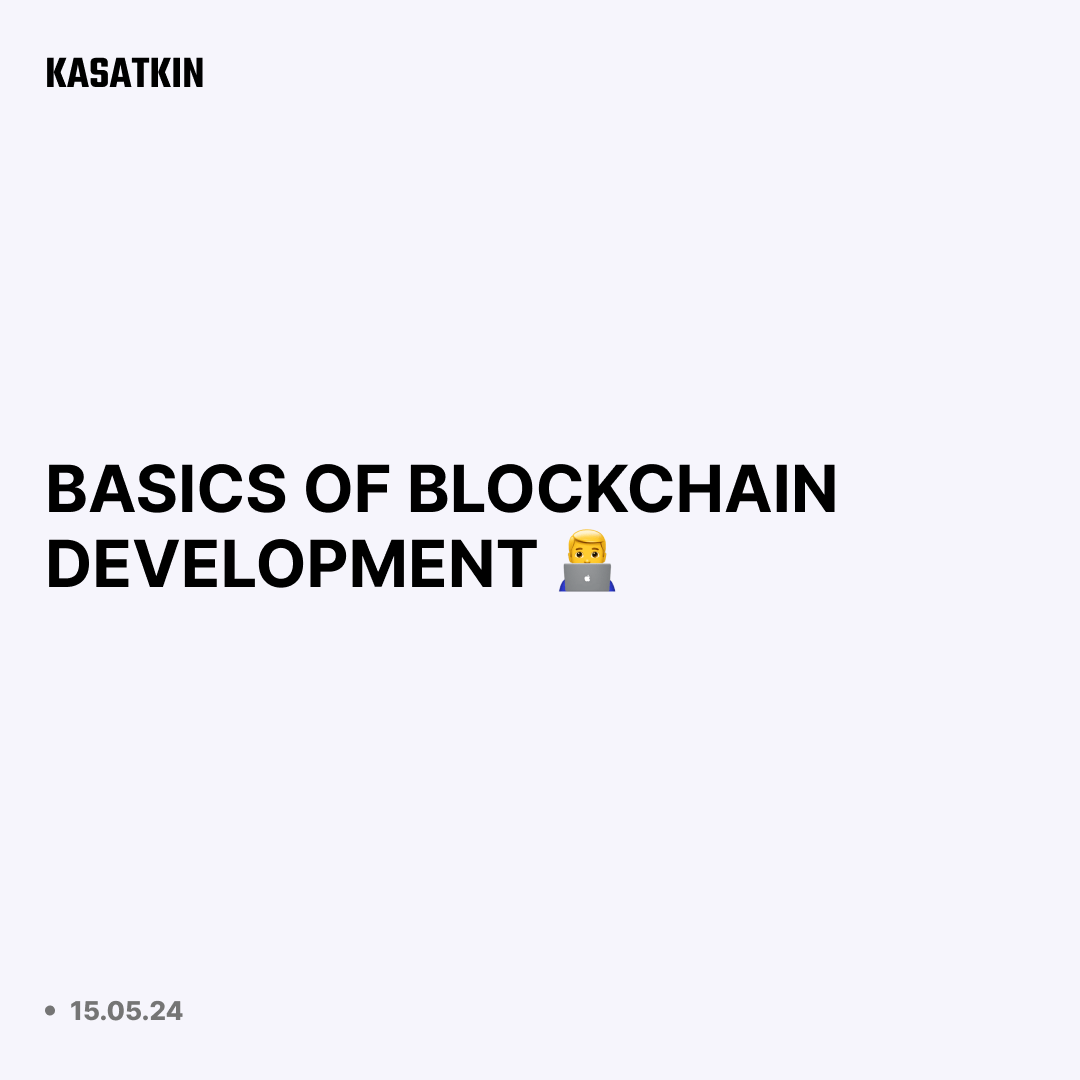KASATKIN
Basics of blockchain development
Blockchain technologies revolutionize various industries, offering new approaches to data security and transparency. In this post, we will explore how to start with blockchain development, the key aspects of creating smart contracts, and which platforms are best suited for novice developers. The KASATKIN team will share their knowledge and recommendations.
The KASATKIN team asserts that the first step for any novice blockchain developer should be to study the fundamental concepts and technologies of blockchain. This includes understanding how data is stored in the blockchain, how cryptographic algorithms work to ensure security, and what decentralization means in the context of data management.
Key aspects for novice developers:
Programming languages: Smart contracts are most often written in Solidity for the Ethereum platform, but there are also other languages such as Vyper or new languages for blockchains like Solana, which uses Rust. The KASATKIN team recommends starting with Solidity due to its widespread usage and large community.
Development and testing of smart contracts
It is crucial to thoroughly test all smart contracts before deploying them on the network. Using development environments such as Truffle or Hardhat can help simplify the development process and automate testing.
Platform choice
Despite the popularity of Ethereum, novice developers should also consider other blockchain platforms. For example, Binance Smart Chain offers Ethereum compatibility but with lower fees and higher throughput. Platforms like Solana offer even higher performance and scalability, which may be critical for some applications.
Understanding the ecosystem
It is important not only to learn the technical aspects of development but also to understand how blockchain technologies interact with various industries and what economic and social problems they can solve.
The KASATKIN team emphasizes that success in blockchain development requires not only technical skills but also a creative approach to problem-solving, a willingness to continuously learn, and adapt to the rapidly changing technology landscape. They recommend that all novice developers actively participate in communities, attend events and webinars, and stay abreast of the latest trends and innovations in blockchain.
